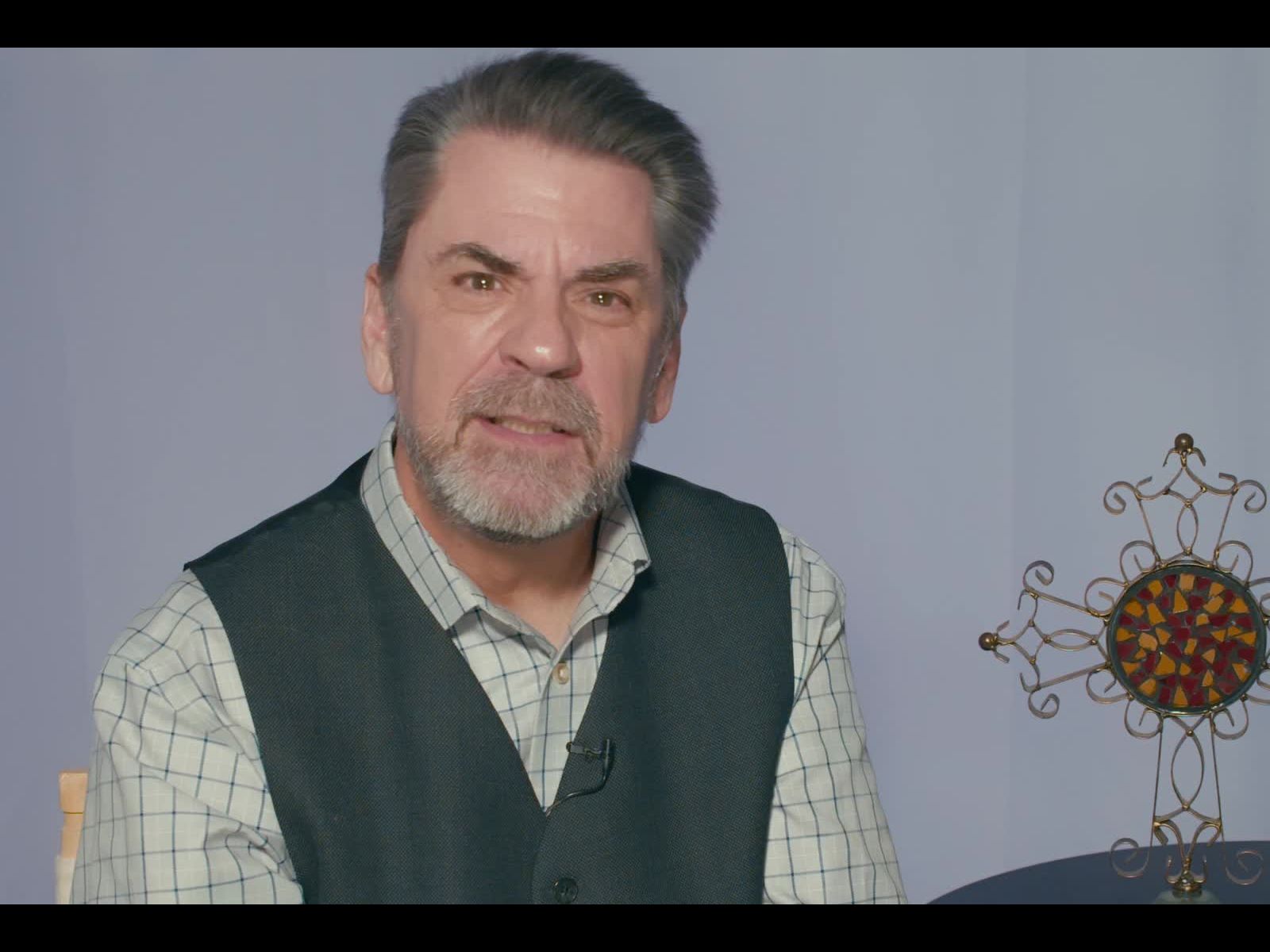Mar 17th: No Future Without Forgiveness, with Rev. Dr. Steven Koski.
A Part of the Series:
Rev. Dr. Steven Koski
Other Articles in:
WATCH:
No Future Without Forgiveness with Rev. Dr. Steven Koski. Series: Everyday Peacemakers A Spacious Christianity, First Presbyterian Church of Bend, Oregon. Scripture: John 8.1-11; Luke 23.34.
Join us this Sunday as Rev. Dr. Steven Koski discusses the importance of forgiveness, especially self-forgiveness, through the biblical story of Jesus forgiving an adulterous woman and inviting her and others to let go of judgment and shame to live freely in God’s love and grace.
Transcript:
Steven: Forgiveness grounded in God’s unconditional love is the most challenging and probably the most important teaching of our Christian faith in this world that’s addicted to dealing with our pain by throwing stones at others and ourselves. You know, forgiveness is necessary if we want peace. And if we want to live as everyday peacemakers. Jesus gives us the clearest picture of the heart of God. We see God’s heart, witnessing Jesus. Looking into the very eyes are the ones who nailed the nails into his hands, saying, Father, forgive them. Jesus didn’t say, Take me down from this cross right now. Prove to me you’re sorry and that you’ve learned your lesson and well, then you might be forgiven. Now unbelievably, incomprehensibly, Jesus said, Father, forgive them. You know, God doesn’t parcel out forgiveness. If you somehow prove that you are worthy of forgiveness. God’s forgiveness isn’t conditional. God is forgiveness. Desmond Tutu said, there is no future. Without forgiveness. Forgiveness doesn’t ignore, deny or trivialize the realities of pain inflicted. Forgiveness releases us to live a different future, to write a different story. Now, when we talk about forgiveness, we often place the focus on on forgiving others. And maybe the most important, the most difficult person to forgive is ourselves. The loudest voice you ever hear is your own voice. And our inner voice can be can be such a harsh critic, judging and condemning us for, for our past mistakes for not being perfect for not living up to our own or other people’s expectations, condemning us for not being enough. Sometimes our condemnation of others, you know, throwing stones at others, is a projection of our own inner condemnation. My dad died 15 years ago. I mean, he was a good man. He taught me a lot about about hard work and resilience. And unfortunately, he wasn’t able to love me in the way I needed to be loved I, I never once heard him say he was proud of me or I never once received any kind of affection. I carried a lot of bitterness and hurt for a long time. I distanced myself thinking, thinking I was punishing him. You know, it’s like the snake bite. It’s not the bite that kills you. But the poison that’s left in your system, no, we run after the snakes shaking our fists and anger. Not realizing it’s the poison in us. That’s doing the damage. With God’s help i I forgave my father. You know, realizing that he really did the best he could with the resources that he had available to him. Forgiving my father didn’t change him. It changed me. I mean, my heart of my heart of stones softened. It was really important for me to name and, and to own my hurt. But I was no longer a hostage to my hurt. I mean, forgiving my father freed me to be the person I wanted to be freed me to be there to hold him as he breathed his last telling him that he was loved and that he had nothing to fear. I forgave my father. But I wasn’t able to forgive myself. I beat myself up with all of the should haves and you know, if only I didn’t forgive my father until after his Alzheimer’s had taken hold of him. I couldn’t forgive myself for not forgiving him earlier. And I carry this heavy heavy weight of guilt and shame for for not being the son. I think I should have been. You know, good It is the weight we carry for our mistakes. You know we’re human, we all make mistakes. Shame is the even greater weight of feeling that somehow we are unworthy of forgiveness that we are unworthy of love and, and belonging. I was able to forgive my father. But I really struggled to forgive myself. I buried myself in the silence of shame. Brene Brown says, shame cannot survive. Empathy, shame cannot survive being spoken out loud. Again, the loudest voice we hear, is that inner critic that inner voice of judgment and condemnation. What if there’s a different voice, a voice of compassion, a voice of forgiveness, that speaks to our shame, a still small voice that’s always speaking to us if we listen a voice, calling us always calling us back to our beloved this. That’s the voice we hear. In a story found in the Gospel of John, picture with me. Jesus is teaching in the temple with people standing around in the circle listening to him, and suddenly there’s an interruption. A group of men, religious leaders, drag a woman into the middle of the circle, their faces red with anger and self righteousness. And according to them, this woman has violated the holy holy this code in the in the Book of Leviticus, which lists adultery along with other offenses, like talking back to your parents, as a capital offense, punishable by being stoned to death. Now, the religious leaders are just simply looking for a way to trap Jesus to publicly humiliate Jesus. They don’t care about this woman. There is absolutely no regard for her as a human being. As is often the case, I suspect they were projecting their own shame onto her. Now, according to the custom of the day that the woman would be stripped to the waist as a token of shame, terrified, defenseless. publicly humiliated an angry mob, a man shouting insults at her, the crowd now in a frenzy, the men with stones in their hands ready to condemn. What do you say Jesus? You know the law. Instead of answering, instead of reacting instead of rising to the emotional level of the accusers, Jesus takes a deep breath, bends over, writes with his fingers something in the dirt. What on earth is he doing? He slows things down. He allows a moment to breathe he allows a moment to loosen the tight grip on the stones in their hands. I wonder how many stones we wouldn’t throw. If we took a moment to breathe. Jesus stands up looks, looks at each face. And I imagine Jesus almost whispering so soft and gentle they actually had to strain to hear. Let the one among you. Who is without sin? Throw the first dough. The woman lying on the ground holds her breath. I mean they they want to Jesus to examine the law. Gently and gracefully Jesus invites them to examine their own hearts. The oldest man in the crowd one of the elders looks at the stone in his hand. And he drops it turns and walks away. Then another and another and another until they all dropped their stones and walked away. The woman is still lying in the dirt moments moments from an excruciating death. It’s it’s hard to be able to breathe Now it’s just the two of them. Where are they? Jesus asks, Has no one condemned you? Neither do I condemn you. Go on your way, and sin no more. You are now free to live a new life go. Be the person God already believes you are. I do not condemn you. Now with those words enough with this woman to forgive herself to break free from shame, I’d love to know what happened next. I’d love to know what happened after Jesus said, I do not condemn you. What would her story now become? Here’s what I imagined. I imagined Jesus looks at her. And she sees for the first time someone who loves her for who she is a child of God. Jesus says you were not made for darkness. But for light, I do not condemn you go walk in the light. And hearing those words, it’s as if she’s able to breathe for the first time. She began to move slowly at first fearing any second he might stop her and take it all back. But then she picks up speed, pounds away like a child on the last day of school set free for the summer. I like to imagine the days weeks months to come she repeated those words who herself seeing his gentle, loving eyes hearing his voice. I do not condemn you. She can’t say when it happened exactly. But one day she noticed that gracefield voice of Jesus became stronger than the harsh critical voice she carried inside her for so long. And she began to slowly reclaim her beloved this, she began to see not only herself but others, even those who hurt her. To the same eyes of compassion and grace to which Jesus saw her. She began to live a new story. So what about those, those angry men ready to throw those stones? Why are we so quick to throw stones at others. You know, it’s easier to judge and condemn and throw stones there than it is to examine why we’re holding those stones in the first place. I so want to imagine that just as the grace of Jesus caused them to to release the tight grip and drop the stones in their hands. I so want to imagine that they they also began to release the pain and the judgment and the fear and the bitterness and the and the hate in their hearts as well. I need to imagine that. Because I want to imagine a new story. A new story is possible for ourselves a new story as possible for our world. Our world. Our world is so addicted to dealing with pain by throwing stones. There is no future without forgiveness. God is forgiveness. To imagine a new story seems impossible. but with God all things are possible. And for now just imagine you’re standing before Jesus. Maybe you have a tight grip on the stone, the stone You’re quick to throw it others maybe you’re just simply used to throwing that stone at yourself. Or maybe you’ve been hiding a sense of shame for so long. That your heart kind of feels like a stone and you hear the words of Jesus I do not condemn you I do not condemn you. For now simply breathe. Allow your heart to break open let those words fall in and find a place to settle. So that you might hear them again and again and again. I do not condemn you go, go be the person God already believes you are made be so


